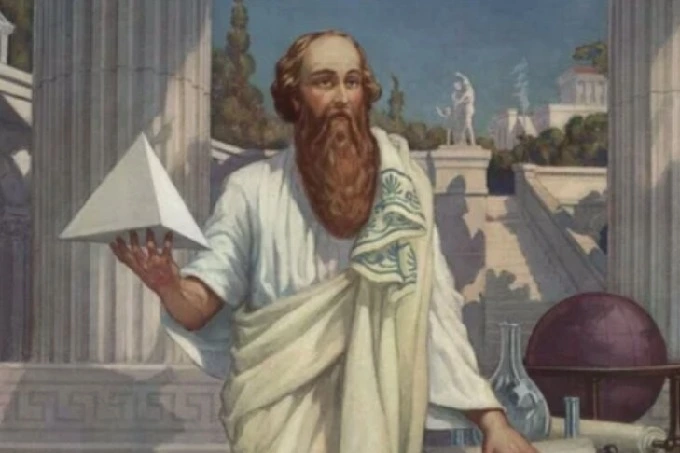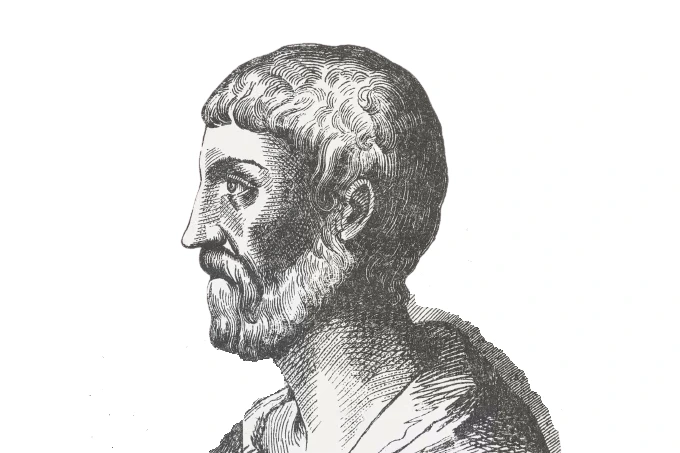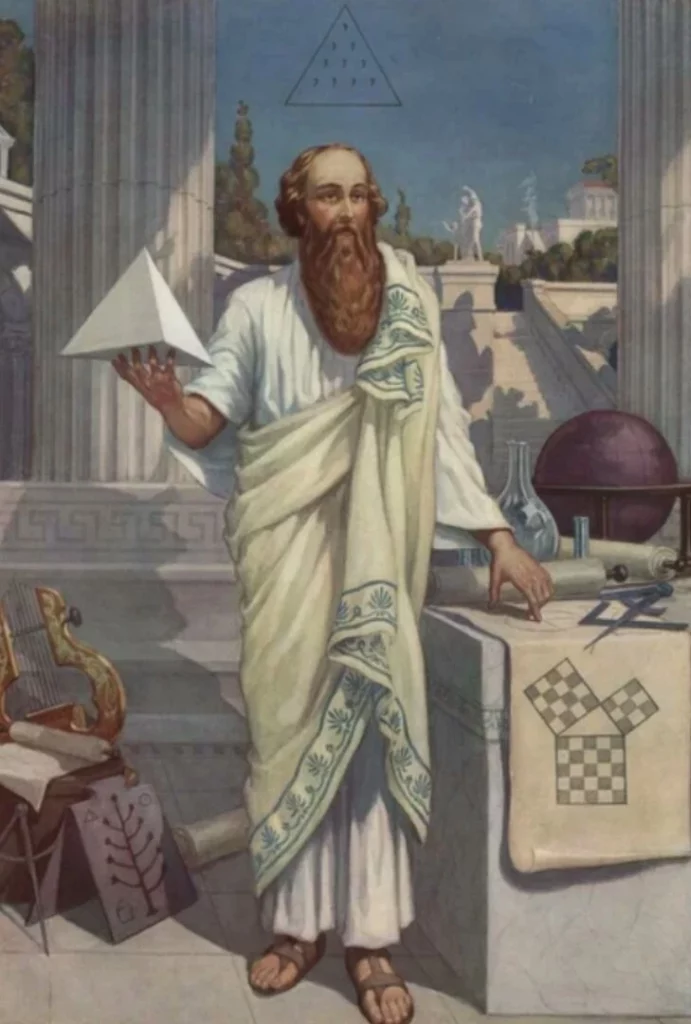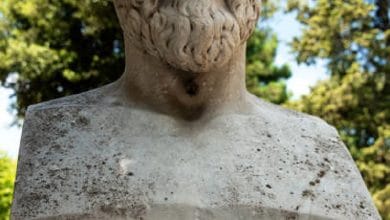Pythagoras’ mysterious mysteries

He was a well-known figure in his day, and his name may still be found in practically every geometry textbook today. Who is Pythagoras, the renowned mystic?
It’s uncommon to find a student who hasn’t heard about Pythagoras and his famous theorem. However, it would be naive to believe that a brilliant scientist discovered only an exact method for solving mathematical problems. Pythagoras was a historical person who brought about a revolution in many aspects of human existence.
Old prognosis
It’s difficult to pinpoint Pythagoras’ exact birth date because we’re talking about antiquity. Even determining the year – approximately 586-569 BC – is difficult for researchers. Although it is unknown whether his parents came from a noble family, his father devoted his life to jewelry, so it is safe to assume that the family did not require financial assistance.
In addition, Pythagoras’ parents are mentioned in one of the legends. Following their marriage, they met an oracle who predicted a bright future for their son. He predicted that this child would grow up to be a great thinker.
When the mother of the future genius gave birth to a child, it was decided to name him Pythia, one of Apollo’s servants. Parents offered gifts to the gods in order for them to fulfill the prophecy, and they tried to provide the boy with the best education possible.
The boy demonstrated exceptional abilities in studying various sciences from an early age. His mentor Hermodamant, who taught Pythagoras the fundamentals of music and literary creativity, had a big influence on him. Pythagoras became acquainted with Homer’s legendary creations through Hermodamant, who taught him by heart.
Pythagoras’ quest for knowledge
Pythagoras decides to travel to other countries as he grows older in order to learn new sciences. Egypt was the epicenter of the development of a wide range of arts and knowledge during the period. However, Pythagoras could not possibly be in this area. Then, due to political differences, Greeks were prohibited from entering Egypt. The young man does not despair, however, and sets out on a journey across vast Greek lands, where he meets outstanding contemporaries who become his teachers.
He meets the famous Thales in Milaeus, who assists Pythagoras in discovering his calling as a philosopher and mathematician. Pythagoras achieves extraordinary heights by gradually accumulating knowledge from various aspects of human life. He grows into a great sage and enlightener, following the path that was predicted.
The Persian War, however, shatters the happy period. The Greeks are forced to retreat after a long battle, and as a result, certain territories fall to the enemy. The Babylonians take Pythagoras captive. He lives in a foreign land for a long time, but he manages to gain new knowledge even though he is a prisoner in Babylon.

Everyone can benefit from science
There are numerous legends about Pythagoras’ stay in Babylonian territory, and this is not by chance. His release was strange, according to the scientist’s contemporaries. He was set free by the ruler after many years of captivity. Of course, it’s possible that the wise king was impressed by the sage’s abilities, but at the time, it was thought that mysticism was required.
The stories that Pythagoras had a long conversation with Babylonian magicians, who shared some of their secrets with him, backed up this version. It is unknown whether this was the case. However, it is undeniable that Pythagoras became interested in the search for mystical secrets and phenomena upon his return to his homeland.
Pythagoras was more than a famous scientist; he wanted to share his knowledge with anyone who had an open mind to new ideas. He was known to speak at open-air meetings and then invite anyone who wanted to learn to his home.
Pythagoras frequently enrolled members of the lower class as students, but the scientist was unconcerned about social differences. Ordinary people regarded him as a messenger from higher powers as a result of this. Pythagoras’ educational system was far more complicated than that of his forefathers. The scientist chose the most capable students as his students, who became followers of his ideas, after a probationary period of up to 5 years.
Mystic as well as mathematician
Pythagoras’ mathematical achievements could be discussed indefinitely. He created the “Pythagorean Table,” which indicates the multiplication of certain numbers and their product, in addition to his theorem, which allowed him to take a new look at geometry. The ratio of the length of a musical instrument’s string to the frequency of vibrations when performed on it was developed using these data. This made stringed instrument manufacturing much easier.
Pythagoras was also a supporter of his own teaching, which had a large following. He believed that the only way to free one’s soul was through purification and morality. Pythagoras also avoided eating animal products and considered eating an animal’s heart to be sacrilege. He devised a numerological system in which each number had its own symbolic significance. This knowledge is thought to have come to him in Babylon.

Unfortunately, it was Pythagoras’ teachings that led to his death. One of the students became enraged with him because he couldn’t come up with ideas for the great mystical mysteries that the scientist possessed, according to legend. This man became a criminal who set fire to the Pythagoras Academy, and the teacher died in the building while saving his students from the flames.
Despite his tragic death, Pythagoras’ contributions cannot be overstated. Modern architecture, mathematics, philosophy, and even numerology are all evolving in accordance with his principles and foundations. Pythagoras’ prophecy came true, and he was immortalized in the collective memory of humankind.

